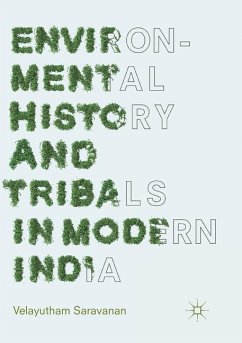This monograph presents a comprehensive account of environmental history of India and its tribals from the late eighteenth onwards, covering both the colonial and post-colonial periods. The book elaborately discusses the colonial plunder of forest resources up to the introduction of the Forest Act (1878) and focuses on how colonial policy impacted on the Indian environment, opening the floodgates of forest resources plunder, primarily for timber and to establish coffee and tea plantations. The book argues that even after the advent of conservation initiatives, commercial exploitation of forests continued unabated while stringent restrictions were imposed on the tribals, curtailing their access to the jungles. It details how post-colonial governments and populist votebank politics followed the same commercial forest policy till the 1980s without any major reform, exploiting forest resources and also encroaching upon forest lands, pushing the self-sustainable tribal economy to crumble. The book offers a comprehensive account of India's environmental history during both colonial and post-colonial times, contributing to the current environmental policy debates in Asia.
Bitte wählen Sie Ihr Anliegen aus.
Rechnungen
Retourenschein anfordern
Bestellstatus
Storno








